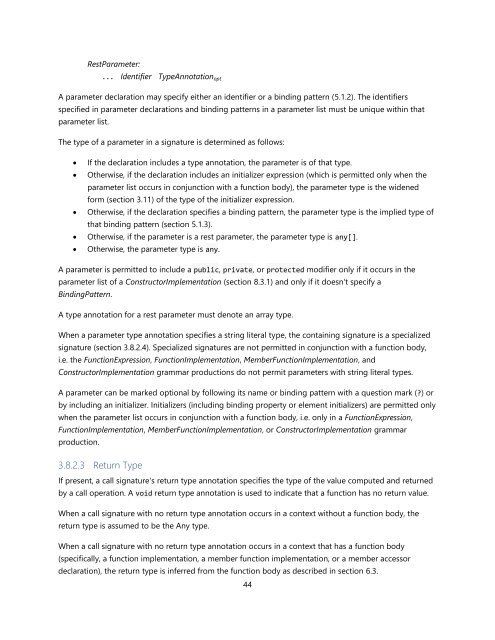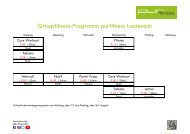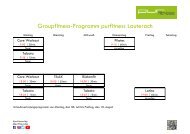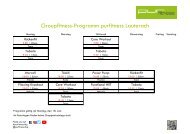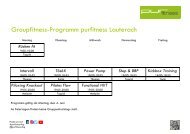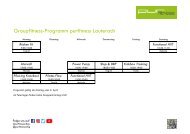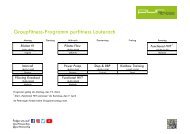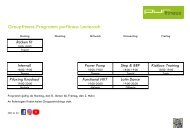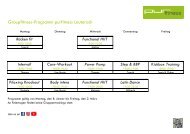TypeScript Language Specification v1.5
TypeScript Language Specification v1.5
TypeScript Language Specification v1.5
Create successful ePaper yourself
Turn your PDF publications into a flip-book with our unique Google optimized e-Paper software.
RestParameter:<br />
... Identifier TypeAnnotation opt<br />
A parameter declaration may specify either an identifier or a binding pattern (5.1.2). The identifiers<br />
specified in parameter declarations and binding patterns in a parameter list must be unique within that<br />
parameter list.<br />
The type of a parameter in a signature is determined as follows:<br />
<br />
<br />
<br />
<br />
<br />
If the declaration includes a type annotation, the parameter is of that type.<br />
Otherwise, if the declaration includes an initializer expression (which is permitted only when the<br />
parameter list occurs in conjunction with a function body), the parameter type is the widened<br />
form (section 3.11) of the type of the initializer expression.<br />
Otherwise, if the declaration specifies a binding pattern, the parameter type is the implied type of<br />
that binding pattern (section 5.1.3).<br />
Otherwise, if the parameter is a rest parameter, the parameter type is any[].<br />
Otherwise, the parameter type is any.<br />
A parameter is permitted to include a public, private, or protected modifier only if it occurs in the<br />
parameter list of a ConstructorImplementation (section 8.3.1) and only if it doesn't specify a<br />
BindingPattern.<br />
A type annotation for a rest parameter must denote an array type.<br />
When a parameter type annotation specifies a string literal type, the containing signature is a specialized<br />
signature (section 3.8.2.4). Specialized signatures are not permitted in conjunction with a function body,<br />
i.e. the FunctionExpression, FunctionImplementation, MemberFunctionImplementation, and<br />
ConstructorImplementation grammar productions do not permit parameters with string literal types.<br />
A parameter can be marked optional by following its name or binding pattern with a question mark (?) or<br />
by including an initializer. Initializers (including binding property or element initializers) are permitted only<br />
when the parameter list occurs in conjunction with a function body, i.e. only in a FunctionExpression,<br />
FunctionImplementation, MemberFunctionImplementation, or ConstructorImplementation grammar<br />
production.<br />
3.8.2.3 Return Type<br />
If present, a call signature's return type annotation specifies the type of the value computed and returned<br />
by a call operation. A void return type annotation is used to indicate that a function has no return value.<br />
When a call signature with no return type annotation occurs in a context without a function body, the<br />
return type is assumed to be the Any type.<br />
When a call signature with no return type annotation occurs in a context that has a function body<br />
(specifically, a function implementation, a member function implementation, or a member accessor<br />
declaration), the return type is inferred from the function body as described in section 6.3.<br />
44


